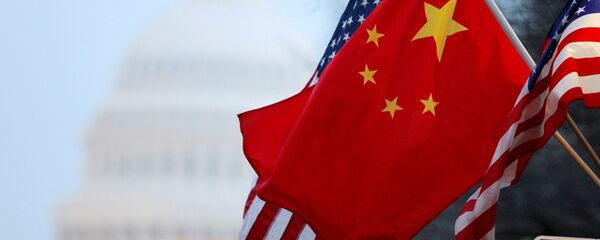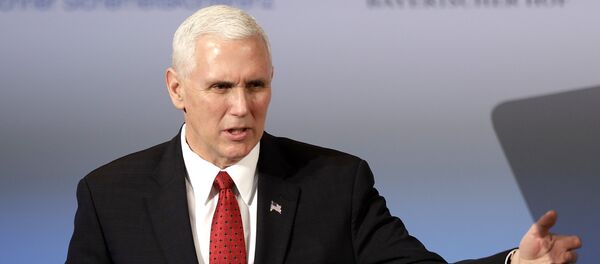The rivalry between China and the US for control of the production and re-distribution of Venezuelan oil will intensify if the US proceeds with its unprecedented political pressure and sanctions against Venezuela, Mikhail Belyat told Sputnik China.
This forecast, however, counters the suggestion, recently voiced by Reuters, that the US could introduce an embargo against Venezuelan crude and exports from the South American OPEC member could be redirected to Asia.
"China and India, the two biggest buyers of Venezuelan crude after the United States, have room to increase imports while other north Asian refiners with equipment sophisticated enough to handle heavy Venezuelan oil, are seeking opportunities to tap this supply," traders and analysts explained.
On Friday, President Trump threatened Venezuela's government with a number of scenarios that Washington is considering, including a "military option".
Mikhail Belyat however suggested that the US, on the contrary, is pressuring Venezuela in order to gain control over its oil.
"The main US aim in Venezuela is to replace the regime with one more friendly towards the US and finally start pumping and controlling Venezuelan oil," he told Sputnik.
The US economy does not depend on the Venezuelan oil, he further explained, but Venezuelan oil is a strong factor in the global oil market. The oil market, in turn, has a sizable influence on the global economy, thus control of Venezuelan oil might offer strong leverage in the control of global economic processes.
China's investments into Venezuela amount to $50-60 billion, the expert explained. According to certain estimates, the majority of that was invested in the prospecting and production of oil. If the situation is going to unfold under the US scenario, the American companies which will enter the Venezuelan oil market will rival the Chinese companies, which have been already operating there.
"It will be a competitive trade fight. The US will try to strip China of the influence it has. I wouldn't call it serious and decisive influence in Latin America, but nevertheless China has a certain leverage in the region. So the fight will be for these particular leverages," Belyat said.
When China had only started entering markets in Latin America, he went on, it entrenched upon the US Monroe Doctrine (America is for Americans, any intervention by external powers in the politics of the Americas is a potentially hostile act against the US.)
China challenged the very essence of this Doctrine and started to rival the US.
"I don't think that there is a serious "war" between China and the US in Venezuela, but there is pretty serious competition between these two powers in Latin America," Mikhail Belyat concluded.
Of course, the economic situation in Venezuela has been less than optimistic since the start of the world financial crisis. For the South American OPEC member, crude is a core of its industry and while world oil prices are falling, it reflects the economic depression of the country.
At the early stage, some Chinese investments in Venezuela were not quite rational, the expert said, as, for example, investments in the construction of high-speed railway. However, all the unfavorable consequences of these investments have already been coped with.
With regards to the oil, a slump in oil prices is not a matter of the last one or two years, he said. China was able to stop the drop-down of its investments into the oil sector of Venezuela. The US however remains the main investor in Venezuelan oil, he said. The scale of Chinese investments into this sphere is relatively small.
In recent years, the majority of Chinese investments in Venezuela were in its agriculture, transport and housing construction. These spheres of industry boost the development of the Venezuelan economy and are not subjected to large political risks, Wang Zhimin concluded.





